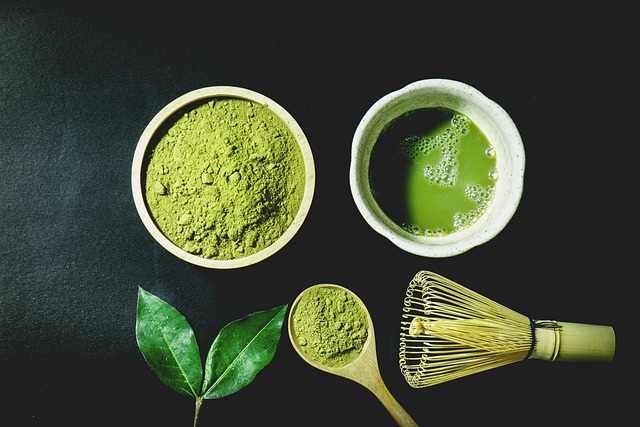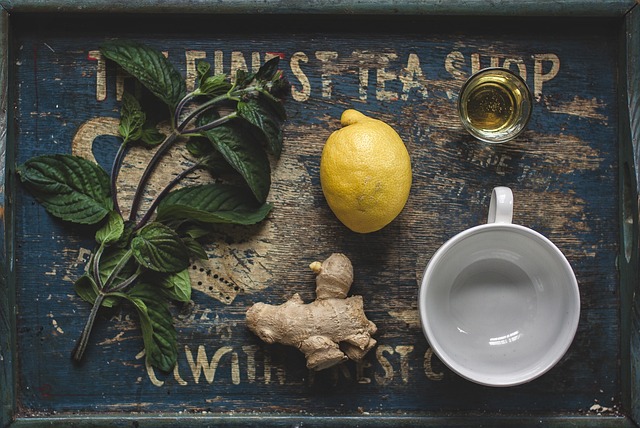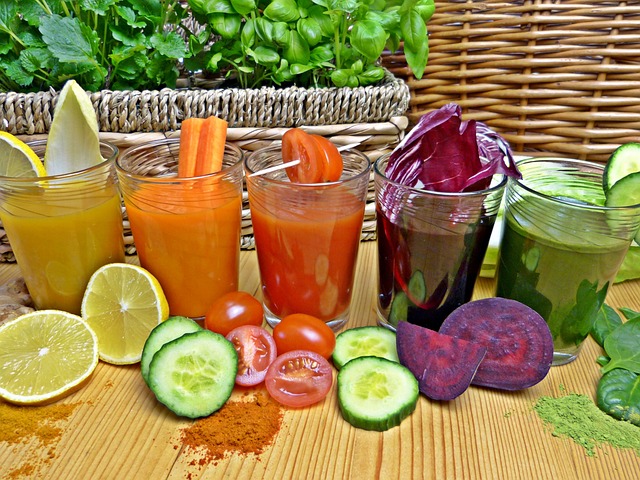use of matcha tea for weight loss | Regular intake & Benefits

What is matcha tea?
Matcha is a different type of green tea prepared from leaves—finely ground and with the finest quality green tea leaves. This powder is unique due to its green color and a taste similar to that of mushrooms and peas. The tea plants are shaded for some weeks before they take the harvest. This will increase their chlorophyll as well as amino acid content, which are characteristic of matcha. Today, it is also used prominently and is used in present-day cooking, ranging from desserts to sauces and gravies. Matcha tea has now become popular in western countries as a weight-loss product and for its ability to induce calm focus.
The science behind matcha tea and weight loss: Harnessing matcha for weight loss
Experts related diet, and scientific research stress over matcha tea, and its efficacy in weight loss. This concerns the effectiveness of matcha tea when it comes to weight loss. The major premises of its action are based on the content of catechins, specifically EGCG, and medium caffeine content.
Catechins and Thermogenesis
Catechins are natural antioxidants that originate from green tea. Matcha has much higher amounts because of its specific farming and processing methods. EGCG is the most effective catechin, and it can stimulate thermogenic processes in the body. In terms of published human research, by December 2009, the American Journal of Clinical Nutrition had reported that the “extract boosted 24-hour energy expenditure and fat oxidation.“.
Hence, we areAccording to Dr. Mike Roussell, a nutrition consultant, “EGCG that is found in matcha has been found to enhance metabolism as well as fat oxidation. Hence, we are turning to matcha as one of the weight-loss mechanisms.-
Caffeine and L-Theanine duo
It amounts to one-third as much caffeine as coffee, making matcha tea’s strength moderate rather than potent. This caffeine content blends well with L-theanine. It is an amino acid that is abundant in matcha to boost energy levels and alertness in the body. This combination assists in attaining great performance and endurance, making a great contribution to physical strength rather than being a detriment to the body.
It also offers the potential to optimize more relevant workouts and maintain calorie expenditure at a consistent level. Another expert in integrative medicine, Dr. Andrew Weil, mentioned that ‘endurance, which gives steady energy for 4-6 hours, may enhance exercise performance and fat combustion.
Short-Term Side Effects of the Drug
Matcha has also been seen to impact issues with appetite, energy intake, and blood glucose levels. Matcha contains polyphenols that can have a positive effect on insulin sensitivity. This will help eliminate food cravings and maintain a healthy glycemic index. This stabilization prevents the fluctuations that cause one to overeat because of extreme stress, or lack of it, and fatigue. According to the Journal of Nutritional Biochemistry, ” Glutathione peroxidase activity in animals will be determined by green tea polyphenols’ ability to influence glucose”.
5 Suggestions Towards the Regular Intake of Matcha Tea
1. the perfect time for a fresh Matcha Tea
Recipe: Heat the water until it boils and reserve one teaspoon of matcha powder. Mix it in a small amount of hot water to get a thick paste. Add hot milk, either from a cow or plant-derived. If it is necessary, add honey or another all-natural sweetener.
Benefits: Another thing that I have also done is replacing the coffee with matcha lattes in the morning. Because it gives you a steady stream of energy without jitters since caffeine and L-theanine are present together.
2. and Matcha to Smonecess
Recipe: You may also blend 1 teaspoon of this matcha powder in your smoothie. Incorporate other materials such as spinach, banana, blended almond milk, and blended protein.
Benefits: The antioxidants also accompany the drink’s natural energy boost, making it a perfect workout drink.
3. Bake with Matcha
Recipe: Bake foods such as cookies, muffins, pancakes, energy bars, or any other food that you wish to have with green tea baking powder. If you mix the matcha into the dry ingredients, a teaspoon or two will improve the flavor and tint of green tea to your baked goods.
Benefits: Give your baked products a special flavor and a healthy influence when you incorporate them into whatever you are baking or cooking as a snack.
4. Matcha Overnight Oats
Recipe: Prepare the matcha smoothie by mixing matcha powder. Add liquid with oats, chia seeds, almond milk, and your preferred sweetener. It should then be left to rest in the refrigerator for at least 6 hours or overnight. In the morning, one can add fruits of his or her choice and nuts of his or her choice on top.
Benefits: A fast food breakfast meal that has the benefits of fiber and antioxidants. Also, it has the stamina to make consumers stay full throughout the morning.
5. Matcha as a Culinary Ingredient
Recipe: Some people prefer using matcha powder in concocting savory recipes such as salad dressings, sauces, and marinating foods. For instance, use matcha to blend olive oil and lemon juice with a sprinkle of salt to produce a salad dressing.
Benefits: Uses matcha in meals after preparing it in a way that enhances the health benefits and also makes the meal more tasteful.
top 9 benefits of drinking matcha tea
1. matcha tea is Rich in Antioxidants
The following nutrients are found abundantly in matcha tea, chief among which are antioxidants like catechins that can neutralize free radicals in the body. Regarding catechins, the major component found in matcha is epigallocatechin gallate (EGCG), which contains numerous benefits as it diminishes inflammation and other ailments.
2. Matcha improves concentration and controls thoughts.
It can therefore be argued that the intake of maides provides a balanced energy boost due to the presence of caffeine and L-theanine. L-theanine counteracts stressful effects on the brain by increasing alpha brain waves. Which has an impact on the state of relaxation without causing any drowsiness. This relationship improves compliance, alertness, and other cognitive parameters.
3. matcha tea Supports Weight Loss
Drinking matcha can help you lose weight because it can stimulate your metabolism and support fat burning. When it comes to its effects on weight loss, researchers have indicated catechins, but more particularly EGCG.Which is found in matcha and leads to an increase in the body’s rate of calorie and fat oxidation. Thus making it perfect for use in weight loss programs.
4. matcha tea Detoxifies the Body
The natural green hue of matcha comes from chlorophyll, one of the components contained in green tea. Chlorophyll is believed to have the ability to detoxify the body. Promoting total body vitality. The detoxification process serves the overall well-being of a person.
5. Tea Improves Heart Health
Daily consumption of matcha in moderation has been found to affect the heart’s health by lowering the amount of LDL cholesterol and triglycerides. Antioxidants also enable matcha to aid in the prevention of lowered LDL cholesterol oxidation. Further, matcha assists in increasing blood circulation, which reduces the levels of pressure in the bloodstream.
6. matcha tea boosts the immune system
Matcha tea has several obvious and involved compounds, but it is rich in several compounds for instance, EGCG, which is known to possess antibacterial value as well as enhance the immunity of an individual. It also contains vitamins A and C, potassium, iron, and calcium since the immune system needs these nutrients as well.
matcha tea
7. Enhances Mood and Relaxation
The amino acid contained in matcha, L-theanine, stimulates the release of serotonin and dopamine in the brain, the hormones that help to get happy, improve memory, and stay relaxed. This contradicts the intended usage of these oils or fragrances as soothing means because they may ease tension and anxiety.
8. matcha tea enhances healthy Skin
Matcha has an appreciable quantity of antioxidants that help safeguard the skin from harm caused by free radicals, which result in wrinkle formation and other signs of aging. Moreover, matcha has anti-inflammatory benefits, which can work wonders on skin problems such as redness, acne, and other types of skin issues to promote healthy skin
9. matcha tea Promotes Digestive Health
Matcha will help in digestion, making it easier to digest foods since it has many fibers. Opinion two has evidence suggesting that the tea has laxative effects and promotes beneficial gut bacteria growth. In the same aspect, the local amino acid L-theanine, present in matcha, likewise plays a key role in managing bacteria in the belly as well as topping it off with healthier intestinal flora.
Matcha vs. Green Tea
1. Preparation and Form
Matcha: All sorts of matcha are prepared using finely ground green tea leaves that are grown in shade. It is used in powdered leaves and this means that all of the leaves make their way to your stomach, thus giving you all the nutrients from the leaves.

Green Tea: Green tea is served by placing the dried leaves in hot water to boil the mixture. The leaves are then composted or thrown away, leaving behind just the brewed tea or liquid to be consumed.
2. Nutrient Content
Matcha: Compared to normal teas, where the leaves are steeped and expelled, matcha is ingested whole, leaving it with higher nutrient and antioxidant contents. Matcha holds ten times the power of standard green tea per 100 milliliters in terms of nutrients.
Green Tea: This food still contains a high amount of antioxidants and nutrients, but compared with matcha, it is fewer due to the brewing process that only prepares the soluble elements in water.
3. Antioxidant Levels
Matcha: It reveals that matcha is a considerably rich source of catechins, primarily epigallocatechin gallate, which is well documented for its medical benefits as it is a powerful antioxidant.
Green tea also contains catechins and EGCG but at much lower concentrations than those found in matcha powder.
4. Caffeine Cothosent
Matcha: Right, matcha has more caffeine in it because you drink the whole leaf, if I remember well. Looking at the arguments made above, it can be realized that in one serving of matcha,. There is an average of 70 milligrams of caffeine that one is likely to ingest.
Green Tea: Green tea is normally known to contain low amounts of caffeine. A single serving may contain anything between 20 and 40 milligrams.
5. Taste and Flavor
Matcha: It has bitterness and sweetness; the taste is almost soil-like but smooth because of the creaminess; and it still has a clearly defined green tea flavor. It may have a more enhanced taste and a richer fragrance compared to green tea, if not mixed.
Green Tea: Like matcha, green tea contains other amino acids, but its taste and flavor come out softer depending on the type of tea and the process undergone and can hint at grass, flowers, or even sweetness.
6. sweetness
Matcha: Because the matcha is taken in concentrated form. It offers more advantages, ranging from a metabolism boost to heightened energy levels in the brain, plus more antioxidant values.
Green Tea: To some extent, green tea also contains the same health benefits. But its effectiveness is much lower than in matcha. Still helps in weight loss, supports the health of the heart, and contains antioxidants.
7. Preparation Time and Complexity
Matcha: Another difference in preparing matcha is that it requires more time than the preparation of green tea. Nonetheless, it involves mixing the powder with hot water and stirring until it becomes foamy.
Green Tea: Black tea, on the other hand, requires more processing and has a more complex preparation process. It includes rolling or folding the tea leaves and then frying them before brewing by steeping them in hot water for 3-5 minutes.
Conclusion
Altogether, matcha, as well as green tea, are informative and useful for various aspects of health. It contains high levels of antioxidants, increases metabolism, and improves brain activity. Matcha is a more powerful alternative to green tea. Since it contains whole tea leaves, matcha provides a richer nutrient and caffeine value to those who wish to maximize the health-promoting benefits of tea. In contrast to black tea, green tea has been proven to be better and more convenient to consume. It provides almost similar benefits but is more appropriate than black tea. In conclusion, whether to use matcha or green tea depends on the taste preference, preparation level, and necessity of beer in fulfilling the specific health demands for adding beer as a part of health-assured meals.






